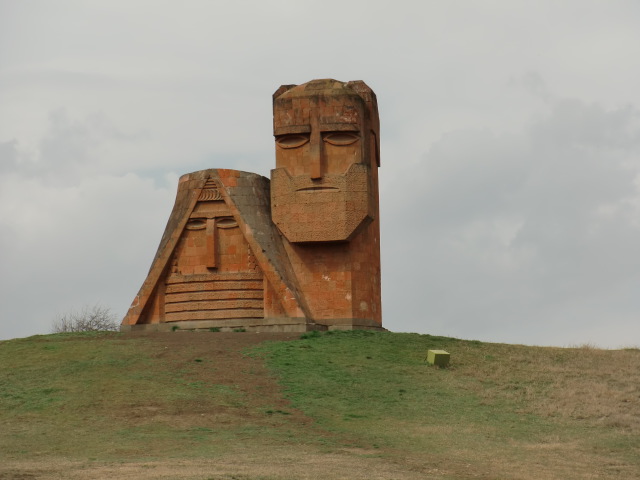吉川 元(特任教授)
本研究プロジェクトは、核開発が進むアジアの国際関係の構造と核開発国のガバナンスの実相を明らかにするとともに、アジアにおける地域ガバナンスの制度化の現状、そして日本の安全保障における核兵器の役割を問うことを目的に企画されている。
冷戦の終結によって人類はひとまず米ソ核戦争の危機から脱した。その後、グッドガバナンス基準のグローバル化の進展による自由で民主的なグローバル社会の到来が期待されたが、21世紀に入ると、そうした期待は脆くも潰えたようである。それどころか、今日、気候変動による異常気象が世界各地で発生する中で、人々は国境も民族も超えたグローバル危機に直面している。今こそ人類が結束して危機に対応せねばならぬというのに、一方で、米中の覇権争い、中国の「一帯一路」構想といった国際秩序再編の動きがあり、他方で、イギリスのEU離脱に象徴されるように地域統合は曲がり角にさしかかる中、世界各地でエスニック紛争や統治権を競う内戦が復活し、国家も分離、分断の時代に突入したようである。
特にアジアでは、国際平和も人間の安全保障も深刻な危機に直面している。今や、軍事大国化する中国とアメリカの覇権争いの中心舞台となったアジアで、南シナ海の海洋安全保障問題、中国と台湾の軍事的緊張関係の悪化など、アジアの行き先は見通せない。それに、冷戦終結後、インド、パキスタン、北朝鮮が立て続けに核開発に成功し、アジアは「核の時代」に突入した。なかでも北朝鮮の核開発に伴う朝鮮半島の軍事的緊張の高まりによって、アメリカ、中国、北朝鮮の核保有3カ国が対峙する東アジアの核戦争の危機は予断を許さない。加えて、全体主義国家・北朝鮮の人民の抑圧はもとより、一党独裁国家・中国の新疆ウイグル人の強制的同化政策、平和構築失敗の後、混乱を極めるアフガニスタンやイラク、軍事政権が復活したミャンマーなど、アジア各地で人間の安全保障が脅かされている。アジアではなぜ核開発が進むのか。なぜ軍事化が進み、安定した平和が定着しないのか。なぜ地域ガバナンス制度が確立されないのか。
本研究プロジェクトの成果が、アジアの危機の構造を知る手がかりとなり、また国際平和と人間の安全保障を両立させるための地域ガバナンス制度の構築の手立てを考察する一助となることを期待する。

US war crimes trial in Manila
SC 240071, SC-WW II, RG 111, National Archives at College Park, MD, USA
A Comprehensive Study of Peace and Governance in Asia
Gen, KIKKAWA (Specially Appointed Professor)
This research project is designed to clarify the structure of international relations and the governance of nuclear developing countries in Asia, where nuclear development is advancing, and to question the current institutionalization of regional governance in Asia and the role of nuclear weapons in Japan's security.
The end of the Cold War brought humanity out of the crisis of the threat of nuclear war between the U.S. and the Soviet Union, and the advent of a free and democratic global society based on the globalization of good governance standards was expected, but such expectations seem to have been dashed in the 21st century. On the contrary, today, people are facing a global crisis that transcends national borders and ethnic groups, as abnormal weather conditions caused by climate change occur in many parts of the world. On the one hand, there are moves to restructure the international order, such as the struggle for supremacy between the U.S. and China, and China's "One Belt, One Road" initiative, while on the other hand, regional integration is approaching a turning point, as symbolized by the U.K.'s withdrawal from the European Union.
In Asia, in particular, international peace and human security are facing a serious crisis. Asia has now become the center stage of the struggle for hegemony between China, which is becoming a military power, and the United States, and with the maritime security issue in the South China Sea and the worsening military tensions between China and Taiwan, it is difficult to foresee how things in Asia will go. Moreover, since the end of the Cold War, India, Pakistan, and North Korea have succeeded in developing nuclear weapons in rapid succession, plunging Asia more sharply into the "nuclear age. Particularly, the rise of military tensions on the Korean Peninsula due to North Korea's nuclear development has raised the specter of nuclear war in East Asia, where the three nuclear powers (the United States, China, and North Korea) are facing off. Additionally, human security is threatened in various parts of Asia, such as the oppression of the people in the totalitarian state of North Korea, the forced assimilation policy of the Xinjiang Uyghurs in the one-party dictatorship of China, Afghanistan and Iraq in turmoil after the failure of peace-building, and Myanmar where the military dictatorship has been restored. Why is nuclear weapon development proceeding in Asia? Why is militarization advancing and stable peace not taking root? Why have regional governance systems not been established?
It is hoped that the results of this research project will provide clues to the structure of the crisis in Asia, and help us to consider ways to establish regional governance systems that can balance international peace and human security.
▶︎第一回 プロジェクト研究会が開催されました。
実施日時:2022年9月28日(水)13時05分~14時35分
講 師 :坂元 茂樹(神戸大学 名誉教授)
テーマ :「中国の人権問題を考える」
中国の新疆ウイグル自治区における人権侵害に対する国連や国際社会の対応や香港問題における人権状況などを踏まえ、中国の条約観や中国の人権観と国際規範の対立について説明し、参加者との質疑応答によって議論を深めた。
形 式 :オンライン(ZOOM)

